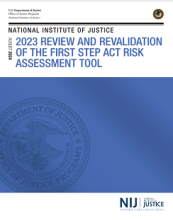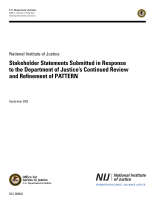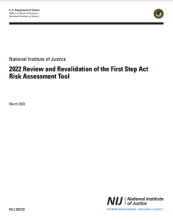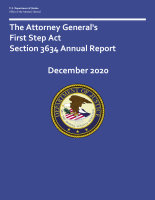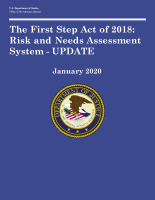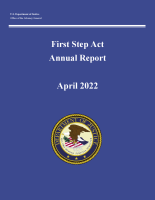First Step Act of 2018
2023 Review and Revalidation of the First Step Act Risk Assessment Tool
Revalidation of the First Step Act Risk Assessment: A Test of Predictive Strength, Dynamic Validity, and Racial/Ethnic Neutrality
Stakeholder Statements Submitted in Response to the Department of Justice's Continued Review and Refinement of PATTERN
A Leg Up: NIJ's Graduate Research Fellowship Program
NIJ Director Dr. Nancy La Vigne joins the show to interview Dr. Marie Garcia, Director of NIJ’s Criminal Justice Systems Division and a former NIJ graduate research fellow. They discuss the application process, Marie’s experience as a fellow while at Temple University, and advice for future applicants.
Reading and Resources from NIJ:
NIJ’s Role Under the First Step Act
The First Step Act of 2018 (the Act) aims to reform the federal prison system and reduce recidivism.
NIJ plays a key role in major components of the Act and will assist the Attorney General in —
- Assessing the Federal Bureau of Prisons’ existing risk and needs assessment system.
- Developing and evaluating a...
2022 Review and Revalidation of the First Step Act Risk Assessment Tool
First Step Act: Review and Revalidation of the Bureau of Prisons Needs Assessment System
First Step Act: Review and Revalidation of the Bureau of Prisons Needs Assessment System
Learning from Doing Evaluating the Effectiveness of the Second Chance Act Grant Program
Reauthorized in 2018, the Second Chance Act (SCA) aims to reduce recidivism and improve outcomes for people returning from state and federal prisons, local jails, and juvenile facilities through the provision of federal grants. During this panel, National Institute of Justice-funded researchers will detail two ongoing evaluations of the SCA grant program:
- An evaluation of the effectiveness of the SCA grant program per Title V of the First Step Act.
- A longitudinal examination of the long-term impacts of the SCA program.
See the YouTube Terms of Service and Google Privacy Policy
From Successful Reentry to Stronger Communities
The Attorney General's First Step Act Section 3634 Annual Report December 2020
The First Step Act of 2018: Risk and Needs Assessment System - UPDATE
First Step Act Annual Report (April 2022)
Predicting Recidivism: Continuing To Improve the Bureau of Prisons' Risk Assessment Tool, PATTERN
Learning from Doing: Evaluating the Effectiveness of the Second Chance Act Grant Program



